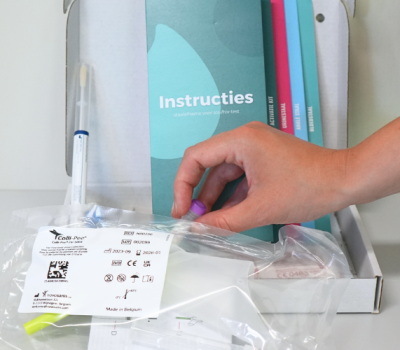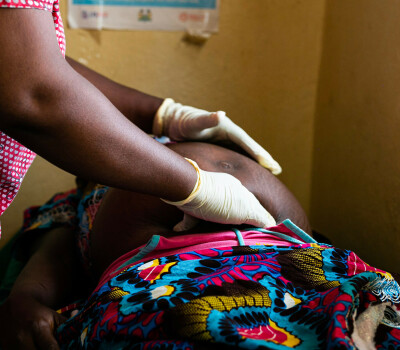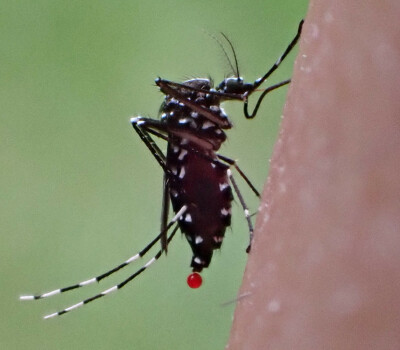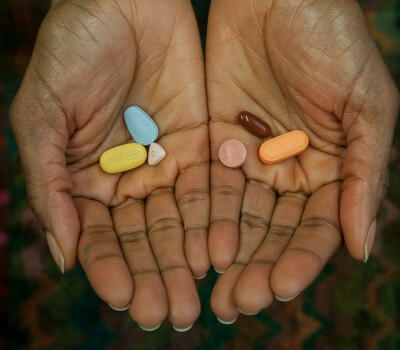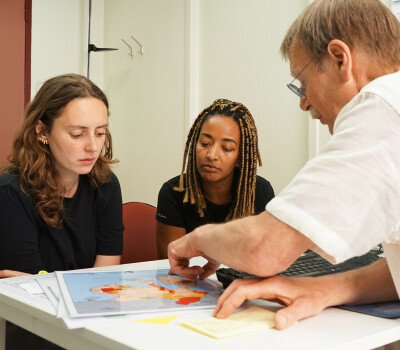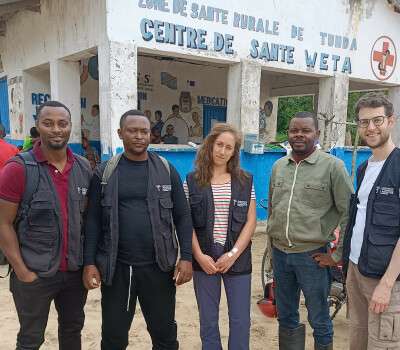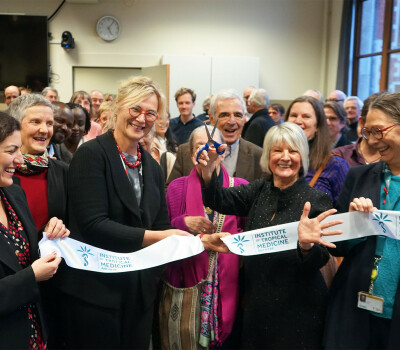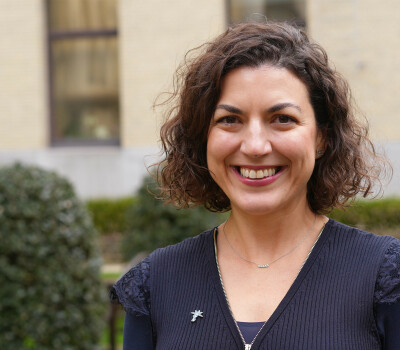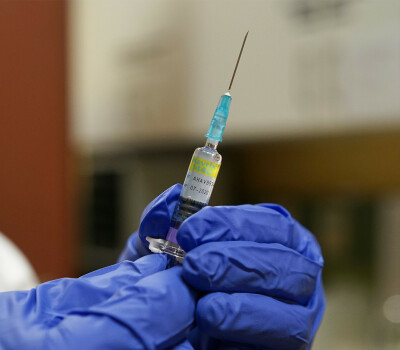ITM welcomes Bill & Melinda Gates Foundation and WHO
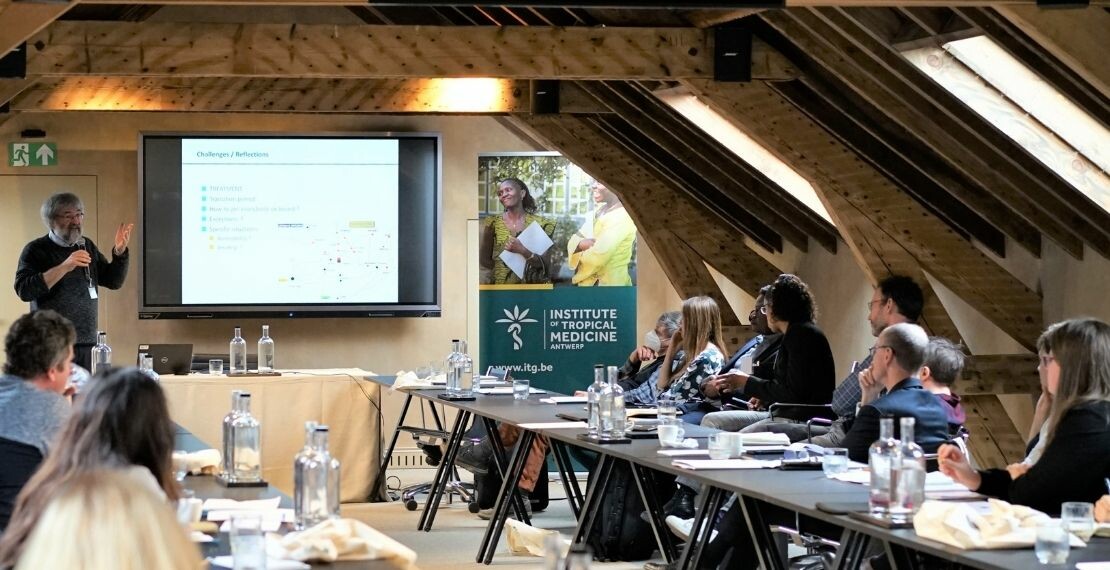
From 15 to 17 March the Institute of Tropical Medicine in Antwerp (ITM) organises an international meeting on sleeping sickness with the Bill and Melinda Gates Foundation, the World Health Organisation (WHO), and partners from the Democratic Republic Congo (DRC), Belgium and the rest of Europe. The key players in the field of sleeping sickness are meeting for the first time in Antwerp to discuss how we can eliminate sleeping sickness once and for all by 2030.
Although sleeping sickness is much less contagious than COVID-19, the disease is still feared in rural areas of sub-Saharan Africa. The DRC in particular has been severely hit by sleeping sickness over the years. Meanwhile, ITM and its Congolese partners are fighting back. Even during the COVID-19 pandemic, the DRC’s National Sleeping Sickness Programme (PNLTHA) was able to screen about two million people annually and identify 400 patients. But to eradicate the disease permanently, besides early detection, expansion to other countries and the availability of a safe drug are essential.
“I really appreciate our long-term collaboration with ITM and the other partners as it is well-grounded and we move together in the same direction.” – Erick Miaka, PNLTHA, Director of the National HAT Programme in DRC
“This meeting comes very timely because we are approaching elimination but we need to reflect on our approach on how to accelerate our efforts to interrupt the chain of transmission of sleeping sickness.” “Our collaboration with the international partners has really grown up as we approach this last mile of the HAT elimination programme. Importantly, we are trying to address the remaining challenges together. ITM is a major historical partner in the diagnosis and epidemiological research of HAT and our collaboration is very important for WHO and the endemic countries.” – Daniel Argaw Dagne, Head of Unit of Prevention, Treatment and Care of NTDs, WHO
United against sleeping sickness
Belgium and the Bill and Melinda Gates Foundation made a commitment to meet the WHO goal of ending tsetse-human transmission of the sleeping sickness parasite by 2030. This challenge amounts to the complete elimination of sleeping sickness, an ambition that has only ever been achieved for a few diseases, such as smallpox.
“This partnership is a uniquely strong one and of key importance for the Gates Foundation. This week’s meeting has been a wonderful opportunity to have everyone from the HAT community at the table again. The extent of dialogue about the challenges has been really refreshing. The right minds are in the room and they are asking the right questions.” – Rachel Bronzan, Senior NTD Programme Officer, Bill and Melinda Gates Foundation
The three partners will meet in Antwerp from 15 to 17 March to share new insights with scientific institutes from France, Switzerland, and the United Kingdom, pave the way for holistic support for all affected countries, encourage cooperation and reach out to new partners.
“It’s been really nice to see people face-to-face after two years; video conferencing can’t replace this. This event gave us an opportunity to gather the HAT community and to discuss the future as we move towards the goal of eliminating human African trypanosomiasis by 2030.” – Sophie Dunkley, Programme Officer for NTDs, Liverpool School of Tropical Medicine
Among the other guests are several WHO Collaboration Centres, which, like ITM, conduct research and provide training in diagnosis of sleeping sickness. These centres are essential for eliminating the deadly disease. For example, ITM conducts sleeping sickness tests, provides training for NGOs in Belgium and in the field, and supports the WHO’s international sleeping sickness courses in Africa.
From disease control to disease elimination
For more than 100 years, ITM has put scientific expertise at the service of the fight against the deadly disease sleeping sickness. Thanks to local and international cooperation, the objective of bringing sleeping sickness under control as a public health problem was achieved in 2020. This means that today in endemic areas, less than one in ten thousand inhabitants is infected with sleeping sickness.
ITM and its Congolese partners have since taken up a new challenge: by 2030, to interrupt the transmission between humans and tsetse flies, the insect that transmits the disease-causing parasite.
2024 will be a turning point in the treatment of sleeping sickness. The new drug acoziborole is expected to be available then. The drug would bring us a whole step closer to eradicating sleeping sickness. Even without acoziborole, the ultimate goal of freeing the DRC from sleeping sickness is achievable. But this will require more time and resources.
Together with our Congolese and international partners we are striving to eliminate sleeping sickness by 2030: to interrupt the transmission of Sleeping sickness to humans by tsetse flies. We are grateful for the invaluable support of the Belgian government and the Bill and Melinda Gates Foundation. It was wonderful to have everyone at Antwerp this week to discuss our future and the challenges as we approach elimination. I am proud of ITM’s leadership in this effort, continuing our 100 plus year expertise in this field. – Marc-Alain Widdowson, director of the Institute of Tropical Medicine.
Spread the word! Share this story on
